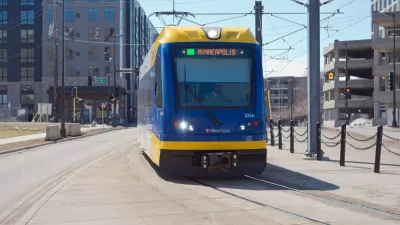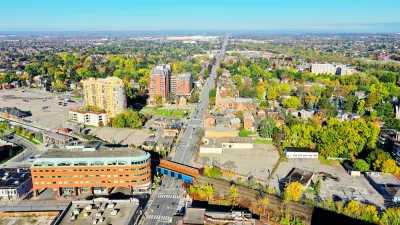The free fare pilot program is only partially complete, but even if it is deemed “successful,” it is unclear how — or if — Metro Transit plans to adopt free fare policies for the long term.

The first six months of a 18-month free fare pilot program in the Twin Cities has brought a double-digit increase in ridership, according to a recent Axios article. Since fares were waived on two popular bus routes, ridership along those routes have grown by 38 percent and 18 percent; overall Metro Transit bus ridership grew only 11 percent over the same time period, writes Axois reporter Nick Halter.
The pilot program was mandated by the Minnesota Legislature last year, a natural continuation of a 2021 reduced fare pilot program, according to State Rep. Sydney Jordan. Jordan told Axois the program has gotten good feedback in her district. “There's a lot of good data that shows that we should look more into this," she said.
Those next steps won’t become clear until the transit agency provides a full report once the pilot is over. But, Halter reports, it seems unlikely the Metro Transit will be made a fully free system any time soon. For one, there isn’t enough support at the legislature for that kind of action. The transit agency is also currently implementing a $37.7 million upgrade of its payment system and counts fare enforcement as one of its tools for increasing public safety on light rail trains.
However, some people argue that free fares could be a better long-term approach for safer buses and trains. State Rep. Brad Tabke, who authored a transit safety bill last session, told Axios that having free fares helps get more people on transit, which ultimately makes it safer. Whether that plays out in the final data from the pilot remains to be seen.
FULL STORY: Metro Transit's free fare pilot drives big ridership increase in Twin Cities

Maui's Vacation Rental Debate Turns Ugly
Verbal attacks, misinformation campaigns and fistfights plague a high-stakes debate to convert thousands of vacation rentals into long-term housing.

Planetizen Federal Action Tracker
A weekly monitor of how Trump’s orders and actions are impacting planners and planning in America.

San Francisco Suspends Traffic Calming Amidst Record Deaths
Citing “a challenging fiscal landscape,” the city will cease the program on the heels of 42 traffic deaths, including 24 pedestrians.

Defunct Pittsburgh Power Plant to Become Residential Tower
A decommissioned steam heat plant will be redeveloped into almost 100 affordable housing units.

Trump Prompts Restructuring of Transportation Research Board in “Unprecedented Overreach”
The TRB has eliminated more than half of its committees including those focused on climate, equity, and cities.

Amtrak Rolls Out New Orleans to Alabama “Mardi Gras” Train
The new service will operate morning and evening departures between Mobile and New Orleans.
Urban Design for Planners 1: Software Tools
This six-course series explores essential urban design concepts using open source software and equips planners with the tools they need to participate fully in the urban design process.
Planning for Universal Design
Learn the tools for implementing Universal Design in planning regulations.
Heyer Gruel & Associates PA
JM Goldson LLC
Custer County Colorado
City of Camden Redevelopment Agency
City of Astoria
Transportation Research & Education Center (TREC) at Portland State University
Jefferson Parish Government
Camden Redevelopment Agency
City of Claremont





























